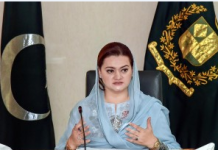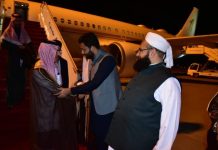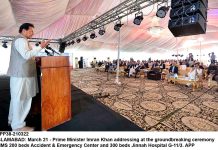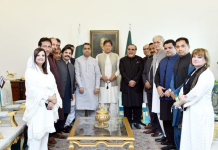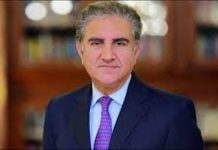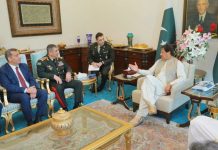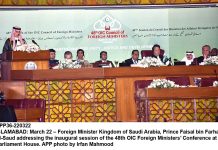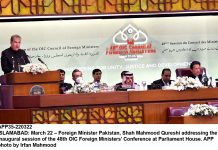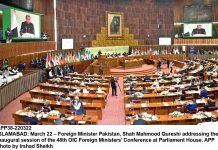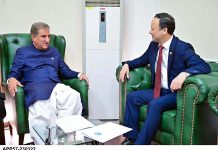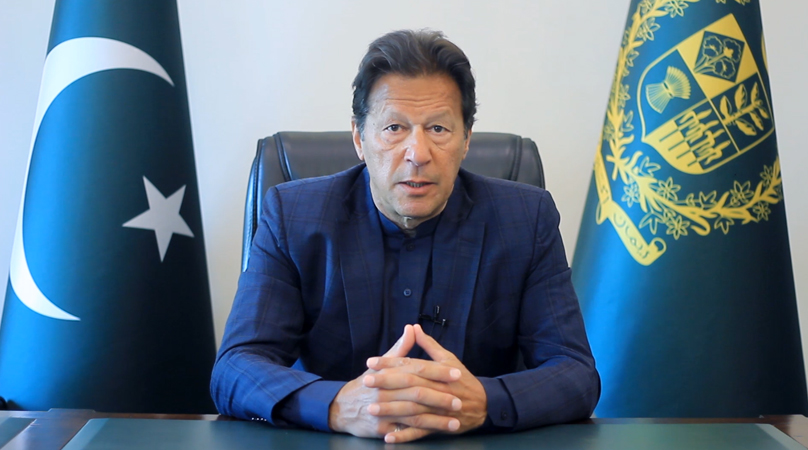
While addressing the inaugural session of the Governing Council of International Fund for Agricultural Development (IFAD) held in Rome, Italy, the prime minister called for investing in sustainable agriculture development, ensuring adequate and fair prices of food products, applying new technologies and rethinking patterns of food consumption and production. “I further propose that a new strategy for sustainable food production and consumption should be considered and adopted at the Food Systems Summit next year,” he said in his virtual address.
The prime minister in his key-note address also spoke on the adverse effects of the Covid-19 pandemic on the economies of various countries, especially the developing ones, pushing another 100 million people into extreme poverty. He also shared with participants Pakistan’s experiences and efforts to mitigate the sufferings of poor people including the historic $8 billion relief package given by his government during the Covid-19 pandemic.
The prime minister while proposing the five-point agenda to end poverty and hunger, said firstly they ought to invest in sustainable agriculture infrastructure – for facilitating transport, production and distribution of agricultural inputs and food products. The ‘Green Lanes’ created by China is a good example,” he added.
Secondly, he said, the governments needed to more actively ensure adequate and fair prices for agricultural and food products. The so-called ‘magic of the market place’ should be balanced by the very visible hand of the State, he said. “We in Pakistan have suffered from market manipulations by monopolists and hoarders,” he said. “Farmers should not be left to the mercy of the corporations. At the same time, international agricultural trade must be rationalized. The huge agricultural subsidies provided by certain richer economies distort global markets and make it impossible for farmers in the developing countries to compete,” he remarked.
Thirdly, Imran Khan said, the new and breakthrough agricultural technologies and techniques must be consciously applied to enhance food production; ensure efficient usage of water and land; and above all improve seed quality. IFAD and the Food and Agricultural Organization (FAO) could play a major role in that context, he added.
Fourthly, the prime minister said the adoption of digital technologies was as vital in agriculture as in other economic sectors. Ensuring internet and broadband access to the rural areas would be vital for their integration into national and global supply chains, he added.
“Fifth, and perhaps the most important, we must re-think our patterns of food consumption and production. We can eat better and many of us would do well to eat less. We can produce food with greater respect for Nature. We can stop the pollution of our lakes, rivers and oceans. We can produce more with less water, and without dangerous chemicals,” he maintained.
Imran Khan said as the world is confronting a looming agricultural crisis, the global population would soon reach eight billion people. “Six hundred million suffer from hunger. Over 100 million children are stunted due to under nourishment,” he mentioned.
Unfortunately, the Covid-19 pandemic is likely to push another 100 million people into extreme poverty, the prime minister said, adding over 20 countries were “food insecure”. The world was facing multiple challenges in recovering from the pandemic and achieving vital first two Sustainable Development Goals, including ‘No Poverty’ and ‘Zero Hunger’, he added.
Imran Khan mentioned various challenges faced by the world, including lack of financing; shortage of investment; trade distortions; unsustainable production and consumption patterns; degradation of agricultural lands and forests; impending water crisis; loss of bio-diversity; and polluted rivers and oceans. “We need a revolution in our vision of our future,” he stressed.
The prime minister said the Covid-19 pandemic and the climate crisis should drive home the message to all – the rich and the poor, weak or powerful – that their destinies were intertwined. “We will perish or survive together. The concepts of geo-strategic adversaries; of regional or global domination; of the political advantages of foreign intervention and occupation and the oppression of peoples, are outdated and will soon be seen as irrelevant,” he remarked.

